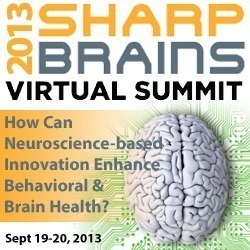Stephanie Korszen: Let’s improve mental self-awareness, starting with the role of fatigue

Stephanie Korszen
What is your current job title and organization, and what excites you the most about working there?
I’m a Product Engineering Manager at Advanced Brain Monitoring, where I have the opportunity to work first-hand with a wide range of researchers, neuroscientists, and doctors. I’m most excited by learning more about upcoming EEG-based research and breakthroughs with real-world applications.
Please tell us about your interest in applied brain science. What areas are you most interested in? What motivated you to pursue work in your field?
I’ve always been passionate about the interaction between technological innovations and the human body. As the brain is often considered the “final frontier,” I’m most interested in gaining insight into the neural underpinnings of cognitive functioning and behavior.
What is one important thing you are working on now, and where can people learn more about it?
One ongoing project that I’m excited to be working on is a multi-modal platform called Team NeuroDynamics, which centers on mapping the neural correlates of effective teamwork and leadership. People can learn more by visiting the Advanced Brain Monitoring website.
What are 1–2 key things you’d like every person to understand regarding his/ her own brain and mind, that you think is commonly misrepresented or not addressed in the popular media?
I think that the effects of fatigue on the human brain are widely underestimated — a cup of coffee can’t make up for chronic or acute sleep deprivation!
Where do you see clear “low-hanging fruit” to enhance behavioral and brain health based on neuroscience and innovation?
I’d say that the “low-hanging fruit” is more self-awareness regarding personal brain health and mental acuity. I see future potential for more objective measures and useful, unobtrusive neurofeedback.
What would you like the 2013 SharpBrains Virtual Summit to accomplish?
I would like the SharpBrains Summit to result in a better, more comprehensive understanding of the current state of applied brain science — as well as an idea of what we can look forward to in years to come.
Finally, what do YOU do to stay sharp?
I stay sharp by reading and writing as often as possible. And listening to NPR on my commute!
 —This conversation is part of a new interview series with Speakers and Participants in the upcoming 2013 SharpBrains Virtual Summit (September 19–20th). You can register with a 20% discount using promotional code: sharp2020
—This conversation is part of a new interview series with Speakers and Participants in the upcoming 2013 SharpBrains Virtual Summit (September 19–20th). You can register with a 20% discount using promotional code: sharp2020


